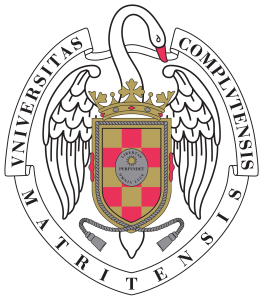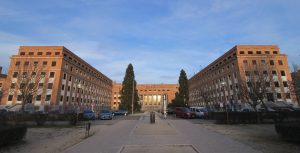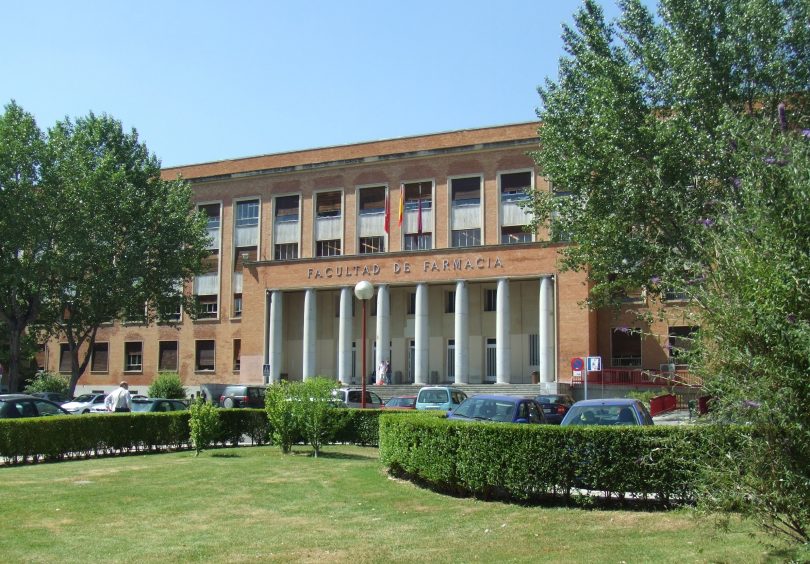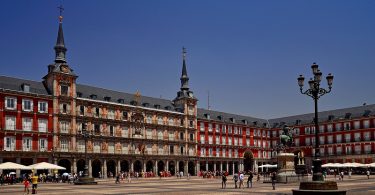The most famous university in the capital of Spain, Universidad Complutense de Madrid is one of the oldest universities in the world.
 The history of Universidad Complutense de Madrid dates back to the end of the thirteenth century when King Sancho IV of Castle granted Gonzalo García Gudiel, the Archbishop of Toledo, a Royal Charter to found a university, or Studium Generale, as they were known at the time. In April of 1499, after the construction of a campus, the university changed its name to Universitas Complutensis, which originates from the Latin form of the name of the location where it was built, Alcalá de Henares or Complutum.
The history of Universidad Complutense de Madrid dates back to the end of the thirteenth century when King Sancho IV of Castle granted Gonzalo García Gudiel, the Archbishop of Toledo, a Royal Charter to found a university, or Studium Generale, as they were known at the time. In April of 1499, after the construction of a campus, the university changed its name to Universitas Complutensis, which originates from the Latin form of the name of the location where it was built, Alcalá de Henares or Complutum.
In the beginning of the sixteenth century, Universidad Complutense de Madrid offered classes in Arts and Philosophy, Medicine, Theology, Philology and Canon Law. A prestigious institution, Universidad Complutense de Madrid would be recognized, in the following centuries, as one of the greatest centers of Academic excellence in the entire world. It was also one of the first universities in the world to grant a Doctorate to a female student, María Isidra de Guzmán y de la Cerda, in a time when female students were still not accepted in universities.
Since its foundation until this day, Universidad Complutense de Madrid has had a great part in invaluable contributions in the fields of fine arts, political leadership and sciences. Some of the most famous students to have attended Universidad Complutense de Madrid were writers Federico Garcia Lorca and Pedro Calderon de la Barca, military leaders Don John of Austria, Alexander Farnese and Cardinal Cisneros, scientists Severo Ocha and Andres Manuel del Rio, and historians Juan Ginés de Sepúlveda and Juan de Mariana. Not only that, the university has taught students that went on to win awards like the Nobel Prize, the Miguel de Cervantes Prize, and the Prince of Asturias Award, and future members of NATO, UNESCO, IMF, ECB, the European Council and the EU Parliament.
Internationalization Studies
Today, Universidad Complutense de Madrid (commonly referred to as Universidad de Madrid) offers Language Planning and Internationalization Studies, Undergraduate Programmes, Master’s Programmes and PhD. Programmes in the fields of Art and Humanities, Engineering, Medicine and Health Sciences, Science and Social Science, and other Non-Degree studies. Universidad Complutense de Madrid also offers summer courses, which last about a month.
 Regarded as one of the most important universities in the world, Universidad Complutense de Madrid also operates four institutions outside of Spain: the Collède des Hautes Études Européennes Miguel Servet in Paris, France; the Catédra Dubcek in Bratislava, Slovakia; the Catédra Complutense en la Universidad de Karlova in Prague, Czech Republic; and the Real Colegio Complutense at Harvard University.
Regarded as one of the most important universities in the world, Universidad Complutense de Madrid also operates four institutions outside of Spain: the Collède des Hautes Études Européennes Miguel Servet in Paris, France; the Catédra Dubcek in Bratislava, Slovakia; the Catédra Complutense en la Universidad de Karlova in Prague, Czech Republic; and the Real Colegio Complutense at Harvard University.
Universidad Complutense de Madrid is located at Avenida Séneca, 2.






